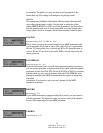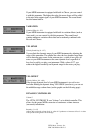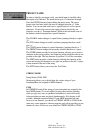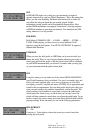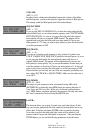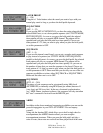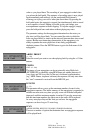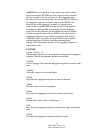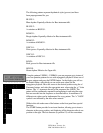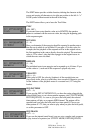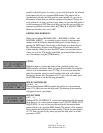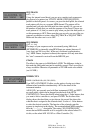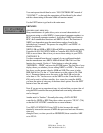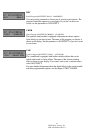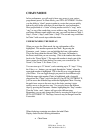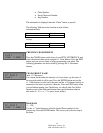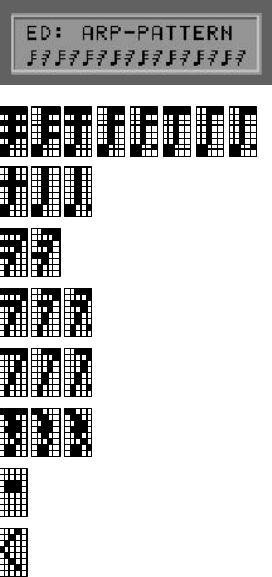
36
ZETA Music Systems, Inc.
ZMC-200 Manual Rev2.0
The following patterns represent rhythmical styles (grooves) and have
been preprogrammed for you:
BLUES 1:
Blues rhythm. Especially effective for Bass instrument riffs.
BLUES 2:
A variation on BLUES 1.
BOOGI 1:
Boogie rhythm. Especially effective for Bass instrument riffs.
BOOGI 2:
A variation of BOOGI 1.
DISCO 1:
Disco groove. Especially effective for Bass instrument riffs.
DISCO 2:
A variation of DISCO 1.
ROCK:
Rock groove for Bass instrument riffs.
HOUSE:
House rhythm. Effective for Organ riffs.
Using the patterns USER#1…USER#16, you can program up to sixteen of
your own quantize patterns for use with arpeggiator playback. Select one of
the user patterns and press the ENTER button. In the display you will see
the Pattern Editor, with which you can set the note values for the
arpeggiator playback. Move the cursor to the desired position using the +/-
Parameter buttons, and select the appropriate note value using the +/- Value
buttons. The “<” represents the end of the sequence (the LOOP). The
pattern will be continuously repeated from beginning to end using the notes
that are recorded into the sequence as described above. A maximum of 8
different note values can be implemented for every pattern. The “<” LOOP
symbol is not affected by the note values entered.
While in this edit mode some of the buttons on the front panel have special
functions:
The STORE button provides for an insert function, allowing you to insert a
character at the cursor position, and displacing all the characters after it one
position to the right. The last character (at position 12) will be overwritten.
32th triplet
32th note 16th triplet 16th note Dotted 16th 8th triplet 8th note Dotted 8th
4th triplet
4th note Dotted 4th
32th trplt rest
32th rest
16th trplt rest
16th rest Dotted 16th rest
8th trplt rest
8th rest Dotted 8th rest
4th trplt rest
4th rest Dotted 4th rest
2th rest
Repeat



